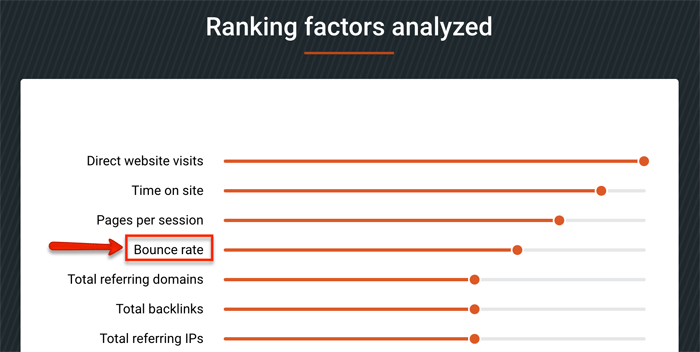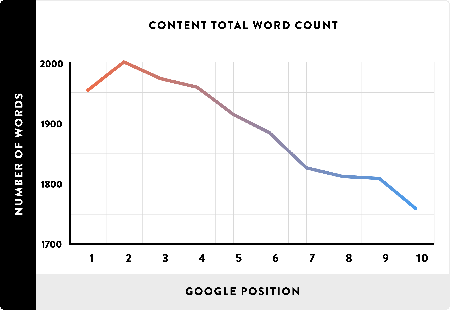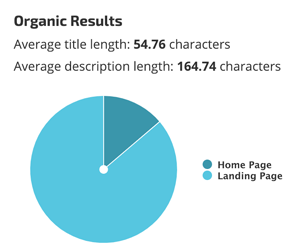If you are starting a new blog or have just started one, I have some tips for you on how to write quality blog content... Okay, who am I kidding? I'm not a professional writer, no one's ever paid me to write a book (and no one ever will for sure), and I'm not a native English speaker. But I've made some pages to the top of Google ranking, and I do make a living by writing blogs.
... This must mean there's at least some level of quality, though I can talk a load of rubbish sometimes, and I'm not the most organized person as far as blog writing is concerned.

Did You Know?
- Blogging Frequency: About 60% of successful bloggers publish new content weekly.
- Content Length: The average length of a high-ranking blog post is around 1,200 to 1,500 words.
- Use of Visuals: Approximately 80% of quality blogs incorporate visuals like images, videos, or infographics.
- Engagement Metrics: Quality blog posts typically see a 5-10% higher engagement rate in terms of comments and shares.
- SEO Practices: Around 70% of quality blogs are optimized for search engines using techniques like keyword targeting and meta descriptions.
So what determines a high-quality website? Plenty of informative elements but there should be something more than just a piece of information. Something that's authentic, easy to read, and friendly enough to make the readers feel at home. Thought-provoking so that they'll feel like leaving a comment. Engaging so that they're willing to check other pages, will result in a low (good) bounce rate.
Create Great Content to Minimize Bounce Rates
Bounce rate is a measure used to determine the percentage of your visitors who leave the site after viewing only one page. A site with "junk" ads and bad content for example can increase the bounce rate. The visitors will bounce off quite immediately, so generally the higher the bounce rate, the lower the quality of a website it indicates.
SEMrush takes bounce rate into account as the 4th most important ranking factor.

Image by SEMrush
One way to suppress a bounce rate is to display links to other pages in the sidebar, such as "Most Popular Pages"...but that's just one technique. One of the most effective ways is obviously to provide content that should appear to be valuable to users.
What Is It To Be 'Original' and 'Unique'?
How to write quality blog content #1 - the content must be original and unique. As in not stolen from elsewhere, also as in maintaining your own style.
Copied content will be penalized by search engines, so don't copy a whole paragraph from another site and paste it onto yours. If an article is written for you by someone else (more about it later...), you can run a quick scan using some plagiarism checker tools.
Duplicate content (as opposed to "copied/stolen" content) can also impact your ranking negatively. So it's not a good idea to copy a substantial amount of your own blog post and paste it to another post of your own either.
Meanwhile, it can be hard to present content with 'your own writing style' sometimes. I don't have my style! I might do but I can't tell because judging whether unique or not is so subjective. Especially if you have Asperger's Syndrome like I do, you might feel the same way. Just by being yourself, one article can appear wacky and quirky to others while another article can appear plain boring. That's how I feel when I read back my own posts, anyway.
Ultimately that's a technique to learn, just like all quiz show hosts talk the same way but maintain their own style at the same time. I guess.
Did You Know?
- Time Investment: Successful bloggers spend an average of 3-4 hours writing a single post.
- Reader Retention: Quality content can increase the average time a reader spends on a blog by up to 50%.
- Content Planning: About 65% of successful bloggers have a content strategy in place.
- Blogging Consistency: Consistent blogging can lead to a 30% increase in blog traffic over time.
- Use of Analytics: Around 75% of quality bloggers regularly check analytics to understand audience behavior.
3,000 Words Everyday, What The Hell!?
Although now that statistics show that the average length of a high-ranking blog page is half of it...
People blog for different purposes. Whether personal or for business, some publish articles regularly because they have information to share, while others blog purely for SEO purposes in order to promote their website and the business.
For many of us, the primary objective of producing quality content is to be ranked in search engines. So that people will find it - if it doesn't make itself known, it won't get read. And as far as search engines are concerned, one of the major elements to determine the quality is quantity; the length of a post. The longer the better. All the SEO gurus prove this.
According to the study by CoSchedule, every post published by them and ranked on the first page of Google had over 2,000 words. ("How Long Should a Blog Post Be to Get the Most Traffic and Shares?")
Brian Dean from Backlinko showed a fabulous study results back in 2016, saying the average word count of a Google first page result was 1,890 words. ("We Analyzed 1 Million Google Search Results. Here’s What We Learned About SEO")

Image by Backlinko
And Neil Patel also says 3,000+ words after compiling various data. ("Why 3000+ Word Blog Posts Get More Traffic")
Needless to say, each of these gurus' analysis itself is lengthy, and found on the first page of Google, proving it to be essential to write a lengthy post to form a 'quality'.
We bloggers take this fact seriously, and many of us often end up composing insanely lengthy articles day in, and day out for the sake of it. Of course, knowing the content has to be relevant and shouldn't be repetitive, we add as much information as's applicable and make it vocabulary-rich. Hopefully, the effort will pay off and the post will rank well, hence people will find it. Whether they find the most intriguing and engaging or not - that's where the real quality measurement lies.
Did You Know?
- Social Media Shares: High-quality blog posts receive an average of 20-50 shares on social media platforms.
- Bounce Rate: Quality blogs often have a lower bounce rate, around 40-60%.
- Email Marketing: Approximately 85% of successful bloggers use email marketing to distribute content.
- Guest Blogging: About 45% of quality bloggers engage in guest blogging to increase their reach.
- Updating Old Posts: Around 55% of bloggers regularly update their old posts, which can increase traffic by up to 70%.
The Importance Of Keywords
No one will deny that the most important part of SEO is to determine the right keywords for a blog. Keywords that are too competitive won't help you rank in search engines. Wrong keywords will invite the wrong type of audience. For example, if you're promoting an email marketing tool, you want your visitors to buy that tool, therefore the keywords should be, say, "the best email marketing tool". If you name it "how to use an email marketing tool", you're inviting people who already have a tool and are looking for a how-to solution.
Some of the basics that you should pay attention to when entering keywords into an article are:
- Analyze keywords using a tool. I strongly suggest that you use premium tools such as Mangools or Jaaxy, as they'll save an enormous amount of your time.
- Try long-tail keywords - consist 3 words or more.
- Create sentences containing keywords. The keywords must also be in the article title.
- Yoast advises that the keyphrase density should be somewhere between 0.5% and 2.5%. It means the chosen keywords should be repeated a few times throughout the post.
But Keywords Are Boring: Better Headlines
"How to improve an SEO". Doh. Heard that a thousand times before. So you can think of a better, unique headline that will certainly add quality to your blog post. Catchy, emotional headlines will get more visitors to click.

Average title length by RankRanger
BlogAbout can give you some headline ideas based on the topic. But the headline also should contain SEO keywords, so finding a perfect headline that's reasonably nice and short can be challenging.
According to RankRanger, the average title length is around 55 characters (as of January 2019 - it updates periodically).
You can also use a headline optimizer tool to split-test some options.
What Is An 'Easy To Read' Article?
We're not expecting every visitor to read a 3,000-word article from top to bottom, are we? But in order to increase their attention span, you want to do anything to make it easier to read.
Yoast suggests that each paragraph should have 150 words or less ("Yoast SEO assessment: Paragraph length"). I'd definitely stick to that rule, wouldn't you? A webpage with just a few really lengthy paragraphs would discourage me from reading on. I'd click a back button and find another site. Even if I didn't and tried reading on a long paragraph would make me tired. Hard to digest, so I'd eventually go away and find another site indeed.
So it's definitely worth taking time to make sure that your article is broken down to the point.
Adding a few occasional images throughout will make an article easy to read too. Not to mention that you should add a relevant alt text to each image for ranking optimization purposes.
Did You Know?
- Long-Form Content: Long-form content (posts with 3,000 words or more) often perform better in terms of shares and backlinks.
- Headline Effectiveness: Effective headlines can increase click-through rates by up to 20%.
- User-Friendly Design: Blogs with a user-friendly design see an average increase of 15% in user engagement.
- Mobile Optimization: Approximately 90% of quality blogs are optimized for mobile devices, which is crucial as over 50% of web traffic comes from mobile.
- Incorporation of Expertise: Posts that include expert opinions or insights see a 30-50% increase in credibility and shares.
Make A List Of Topics

We often waste our valuable time trying to find the right topic for the next article. Taking some inspirational notes daily can help if you care to try. I make a note on my smartphone whenever I come up with an idea. Not just to list up random topics but write down what I think of it, and what I don't know about it (i.e. what more I want to find out about the topic).
When you have a list of topics, you can perhaps plan your writing schedule too, by allocating a specific topic to a certain date.
My random notes are really so random that, they often get me to organize the structure of an article before I start writing it. I personally feel that this method helps me to focus on writing, and it adds more quality to my blog content, rather than quickly writing a draft based on my gut instinct first, and then editing it.
Is Your Blog Post Useful Enough?

This is a tricky one because it's up to your readers to decide whether your blog post is informative or not. But there are a variety of audiences, and you can never expect them to know what you think they know.
For example, I mentioned about copied content that can harm your site. If you've been blogging on your own website for a while, you know it's a common subject. But perhaps I shouldn't expect occasional content writers to know that kind of thing - those who write awesome articles in Quora or Reddit - do they all know they should be wary of duplicating content for SEO purposes?
It's also tricky to find out what the most optimal level of information should be. How much information is enough and how much is too much in one page?
For example, you have 3 similar but different topics to write about. You're thinking 3 separate blog posts, but if you end up writing 800 words per post, you might as well publish it all in one page and make it 2,400 words - rank higher in Google. But is that really going to help your readers? Will they bother to scroll down to check all 3 x topics? Won't they find it too complicated, too much in detail?
Placing a table of contents at the top of the page (like Quick Navigation that I have in this post) is a good idea. It can guide readers through in the beginning.
Aren't You Bored Yet?
If you could keep writing content in accordance with the field you are in total control of, then you'd probably be swimming. But that's not always the case! Even if the niche is closely related to your biggest passion, there'll be continuous research for news updates, opinions debates, and all that.
It's horrible when you experience writer's block - or even feel tired of researching the same niche on a daily basis. Repetition is a boredom! Then you might want to consider hiring professional writers...
Hiring Freelance Writers
So you can get some experienced writers to create articles for you. It can be costly and generally, you get what you pay for. If you use a blogging service such as iWriter, you need to check the writers' review ratings to select a good writer.

Good authors certainly spend plenty of time learning certain topics that you request. Otherwise, they copy an article from elsewhere and simply rewrite it to escape plagiarism checkers. Scammy ones also exist - they use an automatic paraphrasing tool and none of the sentences make sense (in which case you can get your money back for sure). You need to take good time to read the document you received to ensure that the writings are in accordance with your wishes.
You might have to be really picky about what they say in their article. They say one thing but you may have already said something else in one of your previous posts. You don't want a conflict on your own site.
Different writing styles can lose your website's credibility too. If you treat your website like your own baby, you might not like the idea of hiring freelance writers. Perhaps one or two guests, but not so frequently.
With all that said, I find myself learning quite a bit from other people's writing styles. I so admire some articles written by reputable authors for this site; how they're structured, the vocabulary used, etc.
On the other hand, I also learn a lot from bad articles. I make loads of grammatical errors in my own articles, and therefore when others do, it doesn't make me feel so bad! But bad ones are often, paragraphs that are blown up by meaningless phrases. For example;
"Some people like to write blogs, while others don't."
Yeah... Some people like to live a life, while others don't.
"Conclusion: there are so many ways to do XYZ. Make sure to learn them and improve your XYZ."
Is that the conclusion? If you tell them there are so many ways, please list them up!
"Making money online is easy. You just need to know how to get things right."
It's easy to become an astronaut too... All you need is the right stuff......
One man's fault is another's lesson. It helps me make sure that I'm not making up "blah" - pointless statements in my own posts!
How To Write Quality Blog Content
Blogging is a continuous commitment work - if you run it for business particularly, you have to have high-quality posts published regularly. So to sum up, creating quality blog content means investing in;
- Originality
- Relevancy focused
- Information focused
- Readability - good structure and layout
- With visual aids (images, video)
- And at good length!

Thank you for your informative post. I wish I could keep writing quality blog content but it’s really hard work. I am in a real bad situation now and just started affiliate marketing business too and I started to learn about it. I want to hear your advice please.
How can I get my pages ranking on Google and what kind of backlinks do you build?
Where do you purchase your backlinks from and what kind of backlinks have you received so far?
Thank you in advance. I appreciate your time and consideration.
Hi Julien, thanks for your comment. Yes it’s hard to keep writing blog content continuously. The main thing is to enjoy it, so if you find the whole writing process too painful, you can always try other methods (such as YouTube marketing). Your question about Google ranking – it’s all about SEO techniques and it depends on the level of knowledge you’ve built so far, so it’s difficult to answer.
One thing I can firmly say is, I’ve never tried to build backlinks. I wouldn’t use any of those “backlinking services” out there if I were you. You’d be wasting your time having your URL’s pasted in hundreds of spam/bot/traffic exchange sites, which would do you absolutely no favor in terms of ranking. Learn the orthodox SEO techniques and see if your site improves. Any more question in detail don’t hesitate to get back to me. I’ll try answering as much as I can. Thanks for your comment & I wish you the best of luck!
Hi Ray, thank you for your useful blog. I have been following your blogs and looking forward to new updates always but I’ve never seen this blog until now. I would like to start blogging but like you say, it seems very difficult to construct a long article and make it easy to read at the same time. I don’t have a budget to hire freelance writers and if very few of them provide decent articles, that option is out of the window for me. I guess only practice will improve the techniques. I’m still very new to blogging and I learned a lot from this post. Thank you Ray, best wishes to you in continued success.
Thanks for all the useful information. I agree with you, if the content has no quality people leave within 20 seconds then push up the bounce rate. Too many people try to write rubbish blogs less than 500 words with no content or simply a copy from another site. They moan they can’t rank on Google and no wonder. Your article has all the advice that they need to take notes of your points.
Hi, your website is the best place to learn how to make a successful blog. Thank you. I have been trying to write quality content but with my little knowledge it seems that my content ends up very similar to another article somewhere on the internet. How can I become 100% original? I will like to know. Thank you.
Hi Sakura, thanks for your comment. My answer to your question is, just try to be yourself. If you own a website, that’s a great asset, it’s a platform where you can share your knowledge, skills and opinions. You may read other blogs and ‘steal’ ideas but as long as they’re reconstructed in your blog and put in your own words, that’s your original…you don’t have to feel too stressed by it though!
I’ve given up hiring people from Fiverr who charge less but have English names. They are all fake names likely from Africa. Indians or Pakistaners are better but many of them stretch content to achieve the wordcounts. You might as well hire people from other mediums like Freelancer.com and pay more.
Hi Jonathan, thanks for sharing your experience with Fiverr. I wouldn’t want to stereotype them so specifically by country, but sadly you’re not the first one who said so. As for fake profiles, you could find out from the way they reply though. Thanks for the info, useful for anyone who wants to hire a writer for their blog.
Hi, I’m impressed by your quality content. I am an SEO agency and providing links building service to our clients. we provide them a long-term business. I am working with different bloggers since last 7 years. do you accept guest posts?
Hi Matt, thanks for your comment. Yes we do – check out this page Submit Guest Blog Post! and send me a message via the form. Look forward to hearing from you.
Hi Matt, thanks for your comment. Yes we accept guest posts as long as they’re good quality and relevant. Check the guideline and message us. All the best!
Your article is a great job.
I have contributed guest posts to numerous sites but they have never asked me to write long articles. Usually from 500 to 1000 words. But it explains maybe why my posts are never ranked at all. Do you think that I should write longer articles if I want to raise my profile? thanking your advice.
Thank you Braam for sharing your experience. If you are happy with the mutual agreement with your service provider, I guess you can continue as you do, but if you want to raise your profile, I personally think you should really create your own website and publish your post periodically, where you can write as long or short as you wish and experiment the ranking behavior. Thanks for your comment, I wish you all the best!
I agree with you, Ray. People who write low quality stuff never learn it. They write too quickly they don’t even realise it. I had some writers from East Africa. Their favourite expression was “the list can go on”. If you think there is a long list of things, state at least a few first and explain why the list can go on for gods sake. They are used to filling up the space quickly they don’t know how to improve their vocabulary.
Hi Martika, yes they’re paid for the number of words, I’ve seen pretty meaningless “blog articles” produced purely as part of sponsored post business. They’re not adding any informational value, sadly! Thanks for your comment.
I find the current trend ridiculous. Articles I find on Google page 1 are so unnecessarily long and I find it hard to grab points. People watch Youtube because they don’t want to read then why can’t Google prioritize short and concise articles so it’s easier for the readers to understand content?
Hi Sacha, thanks for sharing your thoughts. I think we can all agree that Googling is not always the best solution depending on what kind of information you’re looking for. Just like Wikipedia can be confusing because of the volume of the information with so many links to other pages. Although Google often picks what it thinks contains the best information and summarize at the top of the SERP.
Super post Ray.
It’s a tough balancing act to write long-form, well-researched content and make something that’s enjoyable to read… or even readable!
You’ve mentioned adding a table of contents and this helps people to navigate to the items that are most important to them. What other tips do you recommend to make such long and informative posts more, erm, “fun”?
Hi Paul, thanks for sharing your thoughts. Yes like you say, it’s hard enough to write one long and meaningful content, it’s harder to keep publishing one after another…
Brian Dean of Backlinko has given us a “ridiculously simple” tip to get your visitors stay – to embed a video half-way your article, or in above-fold. So they won’t miss it, they’ll watch it, means they stay in your page as long as the length of the video which is good for SEO. And a video visually entertains. Thanks for your comment, Paul!
Good tip… I’ll try it out on my next biggie!
I get that it’s intimidating for readers to see a post that goes on forever and so I understand why I’ve seen some high bounce on some of the long-form stuff I’ve done… which is frustrating for me too given the time and effort it takes to produce.
Of course my writing could be to blame! 🙁
I’ll let you know how it works out.
Ah, I feel your pain Paul, it’s ridiculous having to write a long article for the sake of SEO. Perhaps you can take a survey or quiz at the end of your post, direct them to another page of yours to reduce bounce rates? Of course you’ll need a plugin for it and it may not be ideal…
Yes let us know what you get on, thank you again Paul for your valuable comment!
Thanks for sharing this amazing blog with us, I have found lots of interesting stuff on your blog. well done guys and keep up your work.
Thank you for your support!
What a great advice. Everyone should learn from this post and start writing good blogs that really means something to users. Too many people write trash for less than 300 words and call themselves internet marketers or bloggers but it’s not easy they should be aware it’s not easy. They never learn and give up. Keywords are so important and I agree with you that you should use a paid service because again I have seen so many people write articles with not so convincing key words. When I check they are not listed as suggested keywords. Too many people have no idea. There are lots of points that should be learned from this post.
Hello, thanks for your comment. I appreciate your opinion! Yes, keywords and article length – two of the most important factors in writing a blog content!
Hi, thank you for your advice, your post itself has a good quality in my opinion!
I was trying to sell my own products for 2 years and never saw a success. I think what’s missing was my ability to blog regularly. I’m not so great at writing and never thought about hiring a writer before. How can you make a ROI if you pay professional writers? I guess it’ll talk a while… Thank you, the post if very helpful. I love the design of your website too!
Hi Laura, thanks for your comment (and compliment!) Sorry to hear that your website business didn’t work out in the way you wanted, but now you have some ideas, you might want to try again now which I can help you with. Regarding your question – professional writers charge $5 – $100 per post, really depends on the quality and you’ll need some experiment. You might want to consider employing someone on a permanent basis, but that’ll cost a lot as you can imagine. You don’t have to write lengthy posts from day 1. Perhaps you can try publishing short blog posts in the beginning, start with say, 350 words? Any more questions don’t hesitate to get back to me any time 🙂